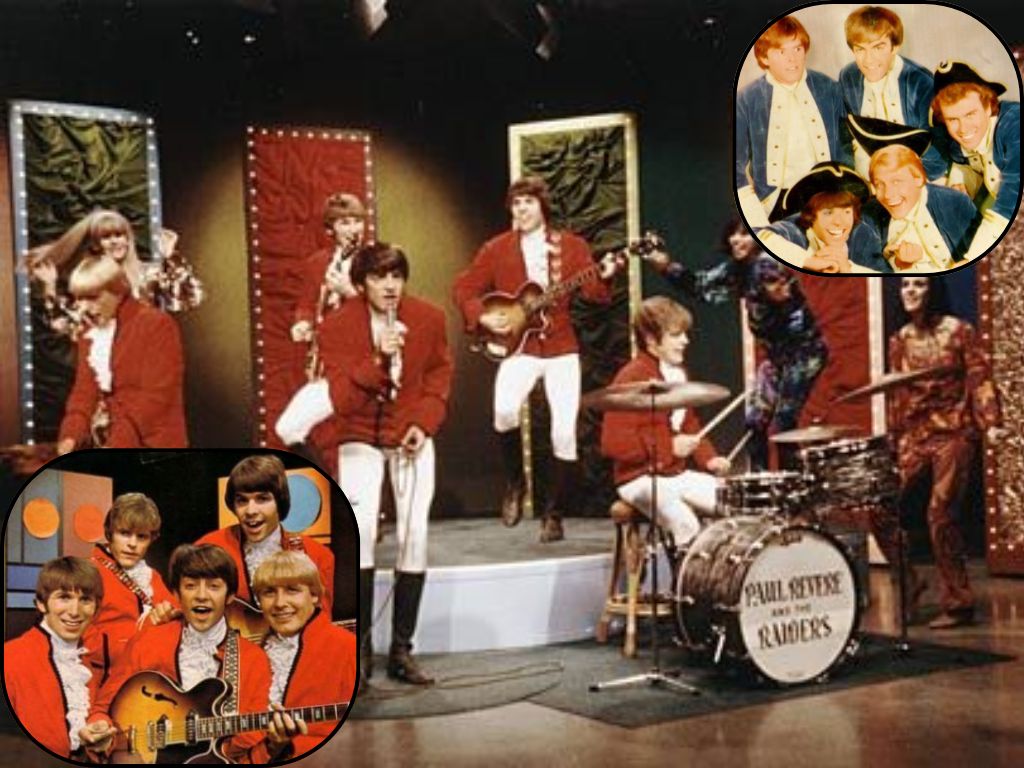
“I’m Not Your Stepping Stone”: A Resonant Roar of Self-Worth from the Sixties
Oh, to be transported back to those vibrant, tumultuous years of the mid-1960s! The air crackled with change, and the music, oh the music, was a soundtrack to a generation finding its voice. And amidst that glorious cacophony, a particular track roared out, a defiant anthem that still resonates with an undeniable punch today: “I’m Not Your Stepping Stone” by Paul Revere & The Raiders. This wasn’t just another pop song; it was a declaration, a guttural cry of self-respect that, upon its release, climbed to a respectable Billboard Hot 100 peak of #21 in 1966. For many of us, it became an instant classic, a track etched into the very fabric of our musical memories.
The story behind “I’m Not Your Stepping Stone” is as intriguing as the song itself, highlighting the often-unseen machinations of the music industry. While The Monkees would later popularize the track, often leading to a common misconception about its origins, it was Paul Revere & The Raiders who first unleashed its raw power. Written by the powerhouse songwriting duo of Tommy Boyce and Bobby Hart, the song was initially offered to The Monkees for their debut album. However, due to various circumstances, it was Paul Revere & The Raiders who got their hands on it first, releasing it on their album ‘Midnight Ride’ in 1966. Their rendition, with its driving rhythm, organ flourishes, and Mark Lindsay’s sneering, impassioned vocals, immediately cemented its place as the definitive version for many a rock and roll purist. It captured the rebellious spirit of the era, a time when youth were increasingly questioning authority and asserting their individuality.
At its core, the meaning of “I’m Not Your Stepping Stone” is beautifully straightforward and powerfully universal. It’s a refusal to be exploited, to be used as a means to an end for someone else’s ambitions. The lyrics paint a vivid picture of a manipulative relationship, where one person is attempting to climb the ladder of success on the back of another. “You’re trying to make a fool of me,” Lindsay snarls, “and put me down, you see.” This isn’t just a lover’s spat; it’s a broader commentary on any relationship, be it personal or professional, where one party is being taken for granted, their worth diminished for another’s gain. The raw emotion in the delivery, the sheer frustration and indignation, made it an anthem for anyone who had ever felt used or undervalued. It gave voice to that quiet resentment that often simmers beneath the surface, transforming it into a defiant shout. For those of us who grew up in that era, it resonated deeply, speaking to the burgeoning sense of self-awareness and a desire to break free from traditional roles and expectations. It was a song that empowered, a sonic fist pump for personal liberation.
Beyond its chart performance and potent message, “I’m Not Your Stepping Stone” holds a special place in the annals of garage rock. Paul Revere & The Raiders, with their Revolutionary War-era costumes and energetic stage presence, were masters of this raw, unpolished sound. They were a quintessential American band, embodying the spirit of youthful rebellion and a no-frills approach to rock and roll. This particular track, with its insistent beat and Lindsay’s charismatic delivery, perfectly encapsulates their signature style. It wasn’t just about the lyrics; it was about the feeling the song evoked – a blend of righteous anger, simmering defiance, and an unwavering belief in one’s own worth. Even today, hearing those opening organ chords immediately transports me back to dimly lit dance halls, the smell of sweat and excitement in the air, and a generation finding its voice through the sheer power of rock and roll. It’s a reminder that some songs aren’t just entertainment; they’re vital cultural artifacts that perfectly capture the essence of a moment in time, forever echoing the sentiments of those who lived through it.